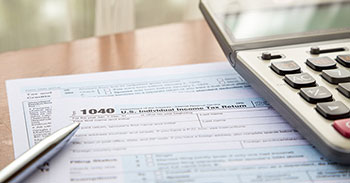
Tax implications of debts discharged in bankruptcy
If your debt is discharged as part of your bankruptcy case, there are no income tax consequences. Since the debt is excluded from your gross income, you do not have to worry about anything with the IRS.
Many times, you will receive a 1099-C form , which is for debt that has been canceled or forgiven. If your receive one, you will just need to file Form 982 with your taxes, which lets the IRS know that the debt was in fact discharged in your bankruptcy case.
What about debts cancelled outside of bankruptcy?
If you have borrowed from a commercial lender and that lender later forgives or cancels your debt, you will most likely have to include the canceled amount as income when you file your taxes. Typically, loan proceeds do not count as income because you are obligated to pay back the loan. Once the loan is canceled or forgiven, that makes the loan count as income.
If you are in this situation, your lender will have sent you Form 1099-C, “Cancelation of debt to the debtor.” They are required to send this form by the 31st of January of the year following the year when your debt was canceled.
The unpaid portion of your loan will be reported as income, unless:
- You are insolvent when the debt is canceled.
- You operate a farm and the debt results from your farm, more than half of your income from the last 3 years was from farming, and the loan was owed to an agency regularly engaged in lending.
- It is a non-recourse loan
- It is excepted by the Mortgage Debt Relief Act of 2007
If you are in a rough financial spot and you are considering bankruptcy – but wondering about the tax implications – call us today at 214-760-7777 and schedule a free consultation. We will walk you through the various parts of bankruptcy so you fully understand how things will work.
